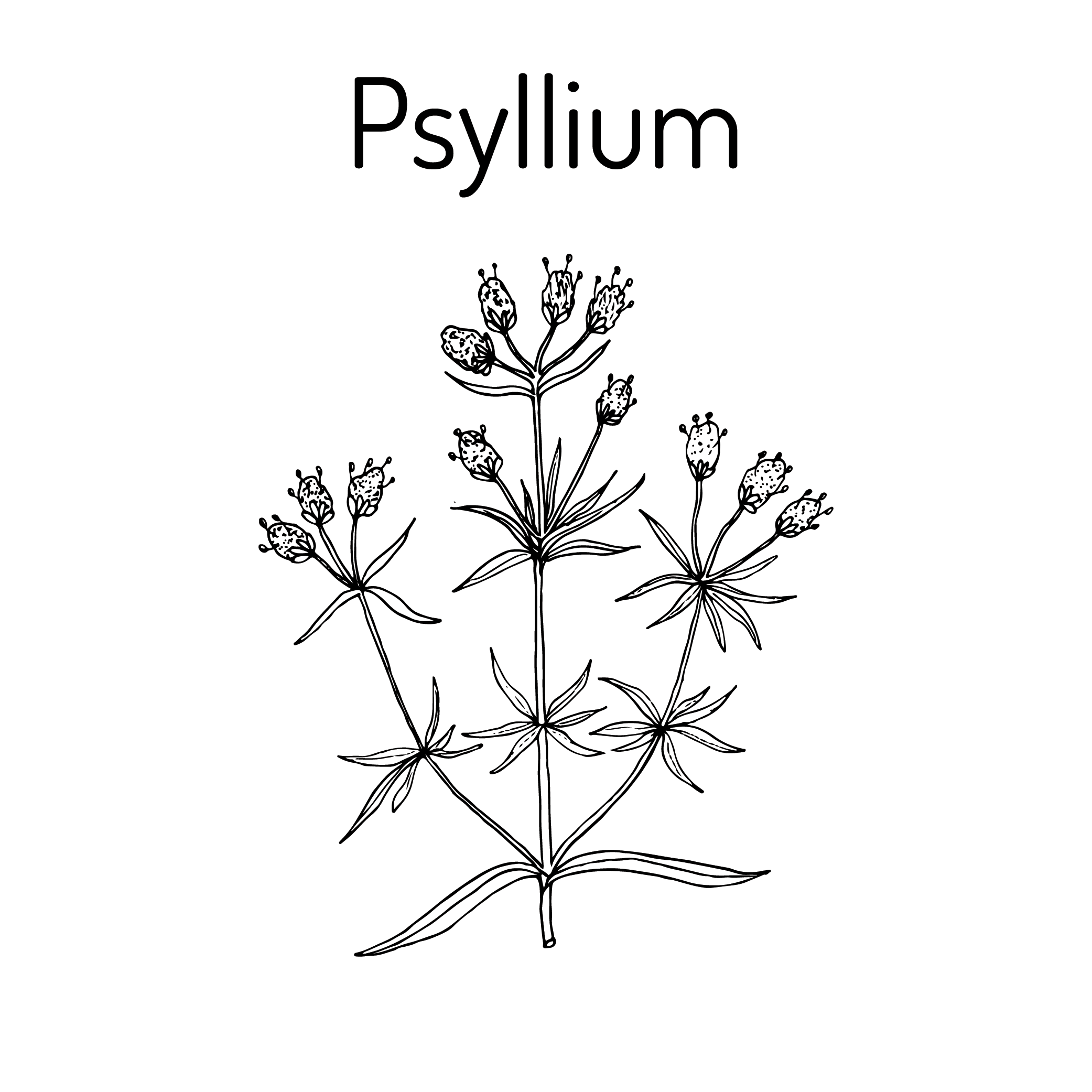Psyllium Husk Health Benefits
Psyllium is extremely rich in fibre, every 100 grams provides up to 80 grams of soluble fibre, which absorbs enough water to form a gelatinous substance in the gut.
This gel cleanses the intestinal wall, transporting not only faeces, but toxins through the colon. And the good thing is, it doesn’t cause diarrhoea or abdominal pain and can still regulate your bowel movements avoiding diarrhoea.
For this reason and - several other - it can help with weight loss by reducing appetite and promoting satiety. It also improves digestion and detoxifies the body.
But these are not the only beneficial effects of psyllium: It helps maintain cholesterol and blood sugar levels and therefore, heart health.
Fibre helps to slow down carbohydrates absorption, regulating blood sugar levels, avoiding peak of insulin and also saving our pancreas from working extra, hence psyllium can prevent type 2 diabetes.
According to a 2012 study published in the scientific journal Molecular Nutrition and Food Research. Study participants consumed foods prepared with psyllium and had a more stable sugar level compared to the control group.
Another study published in the Journal of Ethnopharmacology in 2005 showed that consuming just 5 grams of psyllium a day, or a tablespoon, can help patients with type 2 diabetes in regulating blood sugar. Other researches also show that consumption of soluble fibre controls cholesterol levels.
Numerous studies prove that consuming psyllium accompanied by a healthy diet can work by reducing the risk of heart disease because it reduces LDL. By keeping the bowel movement regulated, psyllium also helps to prevent not only constipation but also haemorrhoids, fissures, diarrhoea, irritable bowel syndrome and is still effective in ulcerative colitis and Crohn's disease.
The curious thing is, because of its ability to absorb water, psyllium also helps to can also be used to help relieve mild-to-moderate diarrhoea.
One tablespoon can help with bowel movement. Remembering that fibre consumption should always be associated with water consumption. Too much fibre and too little water can compromise your health instead of helping.
Psyllium also has a prebiotic effect, helping the development of a healthy intestinal flora.
But beware of excess! It can cause constipation, abdominal pain, gas and steal nutrients from your body.
Psyllium can be used as an ingredient in several recipes, like bread, cakes, cookies, etc. Especially if the recipes are gluten free and dairy free, or without egg, as it helps to give the elasticity of the dough. Only 1/2 tbsp in your recipes and you can already see the effect.


